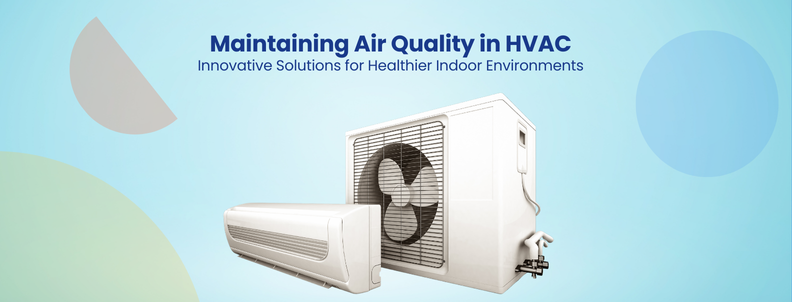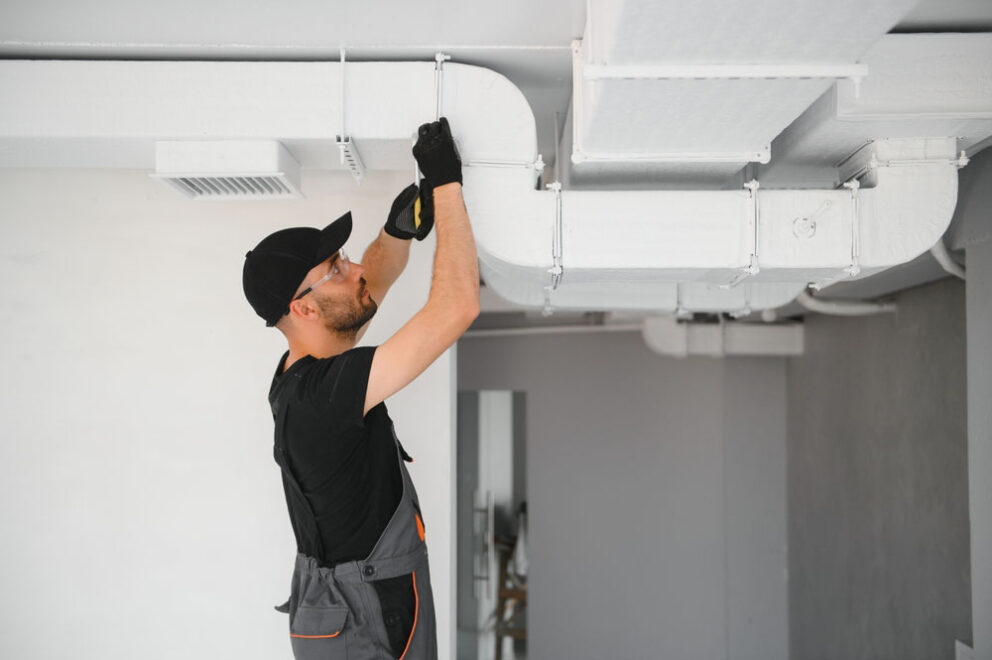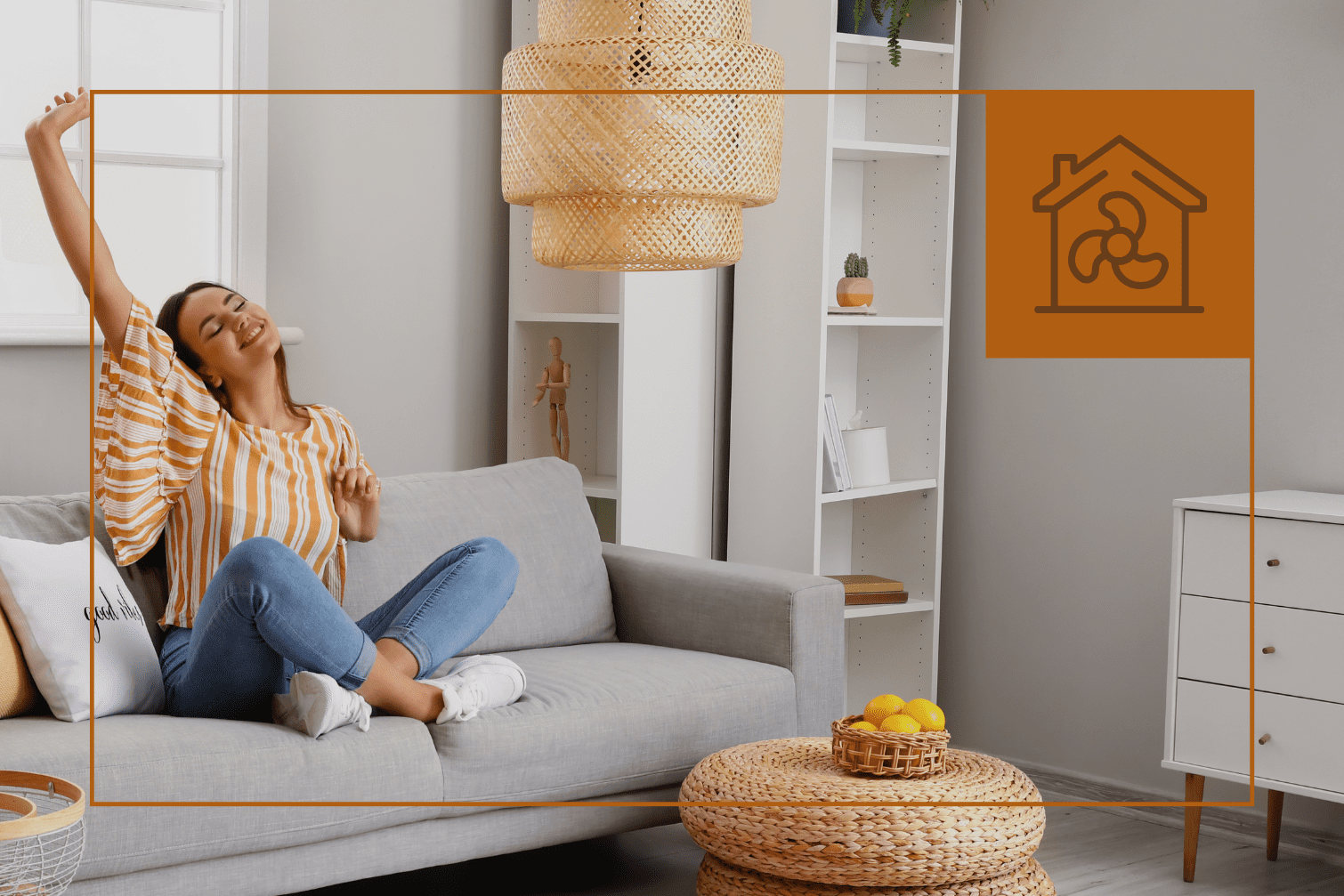Maintaining your HVAC system is key for good air quality. It ensures a healthier home environment.
Regular maintenance of HVAC systems is crucial. It not only keeps the air you breathe clean but also extends the life of your system. Neglecting these systems can lead to dust buildup, mold growth, and poor air circulation. This affects the quality of air in your home and can cause health issues.
By following a few simple steps, you can ensure that your HVAC system runs efficiently. This will help in maintaining better air quality. Investing time in proper upkeep can make a big difference in your comfort and health. Ready to learn how to keep your HVAC system in top shape? Let’s dive in.
Importance Of Hvac Maintenance
Regular maintenance of your HVAC system is crucial for ensuring it runs efficiently. Proper care can extend the lifespan of your unit and improve indoor air quality. This leads to a healthier living environment and lower energy bills. Neglecting maintenance can result in poor air quality and increased energy costs.
Health Benefits
Maintaining your HVAC system has significant health benefits. Clean filters and ducts reduce the presence of allergens and pollutants. This is essential for individuals with allergies or respiratory issues. Regular maintenance also prevents mold growth and the spread of bacteria. This ensures the air you breathe is clean and safe.
Energy Efficiency
Proper HVAC maintenance boosts energy efficiency. A well-maintained system uses less energy to heat or cool your home. This results in lower energy bills and a reduced carbon footprint. Simple tasks like replacing filters and cleaning coils can make a big difference. Regular check-ups can identify and fix issues before they become major problems.
Consider the following maintenance tasks:
- Replace air filters every 1-3 months
- Clean coils annually
- Check and clean ducts regularly
- Schedule professional inspections bi-annually
These steps ensure your HVAC system runs efficiently and effectively.
Regular Inspection
Regular inspection of HVAC systems is crucial for maintaining good air quality. Regular checks can extend the life of your system. They also help in saving energy and ensuring a healthy living environment.
Scheduled Check-ups
Scheduled check-ups keep your HVAC system in peak condition. These routine inspections help in catching small problems before they become big. A professional technician can spot issues that you might miss. They will clean and replace filters, check for leaks, and ensure everything is running smoothly. Having a schedule also means you won’t forget these important tasks.
Identifying Issues Early
Identifying issues early can save you money and discomfort. Small problems can escalate quickly if not addressed. Regular inspections help find these issues before they become costly repairs. Technicians can detect signs of wear and tear, inefficiencies, and potential hazards. Early detection means you can fix problems before they affect your air quality or system performance.
Filter Replacement
Maintaining your HVAC system involves many tasks, but filter replacement is among the most crucial. Regularly replacing your filters ensures that your home has clean air and your system runs efficiently.
Types Of Filters
Various types of filters cater to different needs. Here are some common types:
- Fiberglass Filters: Inexpensive but need frequent replacement.
- Pleated Filters: Better at trapping particles, last longer.
- HEPA Filters: High efficiency, best for allergies.
- Electrostatic Filters: Reusable, trap small particles.
Replacement Frequency
How often you should replace your filter depends on various factors.
| Filter Type | Replacement Frequency |
|---|---|
| Fiberglass Filters | Every 30 days |
| Pleated Filters | Every 90 days |
| HEPA Filters | Every 6-12 months |
| Electrostatic Filters | Every 30 days |
Pet owners or allergy sufferers may need to replace filters more frequently. Checking your filter monthly can help you know when it’s time for a change.

Credit: www.greyb.com
Cleaning Ducts
Maintaining your HVAC system is essential for good air quality. One key aspect is cleaning ducts. Clean ducts ensure that the air circulating in your home is free from dust, allergens, and other pollutants. This can improve your health and comfort. Let’s explore the best ways to keep your ducts clean and maintain a healthy living environment.
Professional Services
Sometimes, it’s best to call in the experts. Professional duct cleaning services use specialized tools and equipment. They can remove debris and contaminants efficiently. Here are some benefits of opting for professional services:
- Thorough Cleaning: Professionals reach areas that are hard to access.
- Expertise: They know how to handle different types of ducts.
- Better Equipment: Professionals have high-powered vacuums and brushes.
- Reduced Risk: They minimize the risk of damaging your ducts.
Professional services can be more expensive but are often worth the investment. They ensure your system is cleaned thoroughly and correctly.
Diy Cleaning Tips
If you prefer to do it yourself, follow these tips for effective duct cleaning:
- Turn Off Your HVAC System: Safety first. Always turn off your system before cleaning.
- Gather Supplies: You will need a vacuum, a brush, and a screwdriver.
- Remove and Clean Vents: Use the screwdriver to remove the vent covers. Clean them with soap and water.
- Vacuum Inside the Ducts: Use a long hose to reach inside the ducts. Vacuum out dust and debris.
- Brush the Duct Walls: Use a brush to scrub the walls of the ducts. This helps remove any stuck-on dirt.
- Replace the Vents: Once everything is clean, put the vent covers back in place.
DIY cleaning can be effective for maintenance. But for a deep clean, consider professional services. Regular cleaning helps maintain better air quality.
Thermostat Management
Maintaining your HVAC system involves proper thermostat management. This ensures better air quality. A well-managed thermostat optimizes energy use. It also ensures a comfortable indoor environment. Here are some tips on managing your thermostat for better air quality:
Optimal Settings
Setting your thermostat correctly is crucial. Keep your home at a stable temperature. This helps in maintaining air quality. Here are some optimal settings for different times:
| Time | Temperature (°F) |
|---|---|
| Daytime (Occupied) | 70-75 |
| Nighttime | 65-70 |
| Daytime (Unoccupied) | 60-65 |
Keeping these settings helps reduce strain on your HVAC system. It also improves indoor air quality by maintaining a consistent climate.
Smart Thermostats
Smart thermostats offer advanced control. They adjust temperatures based on your routine. This ensures optimal air quality while saving energy. Here are some benefits of smart thermostats:
- Remote Control: Adjust settings from anywhere using your smartphone.
- Energy Efficiency: Save on energy bills by optimizing usage.
- Learning Capability: Adapts to your schedule and preferences.
Consider upgrading to a smart thermostat for better management. This investment can improve air quality and comfort in your home.
Seasonal Maintenance
Regular HVAC maintenance ensures better air quality by cleaning filters, checking ducts, and inspecting coils. This helps reduce allergens and improve airflow in your home. Routine servicing also enhances system efficiency and longevity.
Maintaining your HVAC system is essential for better air quality. Seasonal maintenance helps ensure your system works efficiently throughout the year. It also prevents unexpected breakdowns and keeps your indoor air clean. Let’s explore some key seasonal tasks.Pre-summer Check
Before summer hits, check your HVAC system. Clean or replace air filters. Dirty filters reduce airflow and strain the system. Inspect the outdoor unit. Remove debris and clean the area around it. Ensure the refrigerant levels are adequate. Low refrigerant can lead to inefficiency and higher energy bills. Test the thermostat to make sure it’s working correctly. A well-functioning thermostat improves temperature control and comfort.Winter Preparations
Preparing your HVAC system for winter is crucial. Start by checking the heating components. Clean and inspect the furnace or heat pump. Replace any worn-out parts. Check the vents and ducts for blockages. Clean them to ensure proper airflow. Insulate any exposed pipes to prevent freezing. Test the carbon monoxide detectors. Safety is essential during the heating season. Lastly, make sure the thermostat is set to a comfortable temperature. “`Dealing With Mold And Mildew
Dealing with mold and mildew in HVAC systems is vital for indoor air quality. Mold and mildew can spread quickly and cause health problems. They thrive in damp, dark areas, making HVAC systems a perfect breeding ground. Regular maintenance and cleaning can prevent these issues and improve air quality.
Preventive Measures
To prevent mold and mildew, follow these simple steps:
- Keep humidity levels below 60%.
- Use a dehumidifier in damp areas.
- Ensure proper ventilation in rooms.
- Replace HVAC filters regularly.
- Check for leaks and fix them promptly.
Cleaning Methods
If mold or mildew is present, use these cleaning methods:
- Turn off the HVAC system before cleaning.
- Wear protective gear, such as gloves and a mask.
- Use a mixture of water and mild detergent to scrub affected areas.
- Rinse thoroughly with clean water.
- Dry the area completely to prevent future growth.
- Consider professional cleaning for severe infestations.
Regular maintenance keeps HVAC systems clean. It ensures better air quality and a healthier home. Follow these tips to keep mold and mildew at bay.

Credit: ecmservice.com
Hiring Professionals
Maintaining your HVAC system is crucial for better air quality. But sometimes, DIY efforts may not be enough. This is where hiring professionals come into play. They have the expertise and tools to ensure your HVAC system is running efficiently.
Choosing The Right Contractor
Finding a trustworthy contractor is vital. Start by asking for recommendations from friends or family. Check online reviews and ratings. Make sure the contractor is licensed and insured. Ask about their experience with HVAC systems similar to yours. A good contractor will also provide a detailed estimate.
Cost Considerations
Cost is always a concern. Get multiple quotes to compare prices. Be wary of extremely low bids. They may indicate poor quality work. Look for contractors who offer a clear breakdown of costs. Understand what is included in the service. Sometimes, paying a bit more ensures better service and long-term savings.

Credit: coldfactor.com
Frequently Asked Questions
How Often Should Hvac Filters Be Replaced?
HVAC filters should be replaced every 1-3 months. Regular replacement ensures optimal air quality and system efficiency. Check your filter monthly and replace if it’s dirty.
What Are Common Signs Of Hvac Issues?
Common signs include unusual noises, inconsistent temperatures, and increased energy bills. Regular maintenance can prevent these issues and ensure your system runs smoothly.
How Can I Improve Hvac Efficiency?
Improve HVAC efficiency by regularly cleaning filters, sealing ducts, and scheduling professional maintenance. These steps help maintain air quality and reduce energy costs.
Why Is Regular Hvac Maintenance Important?
Regular HVAC maintenance is crucial for better air quality and system efficiency. It prevents costly repairs, extends system lifespan, and ensures optimal performance.
Conclusion
Regular HVAC maintenance improves air quality and keeps your home comfortable. Clean filters and ducts ensure efficient operation. Schedule regular professional check-ups to catch issues early. Good air quality means better health for everyone. Don’t overlook your HVAC system. Simple steps can make a big difference.
Keep your system running smoothly. Enjoy fresher, cleaner air every day.
Rakib Sarwar is a Registered Pharmacist and a reputed health and wellness blogger. He has a great interest in Air purifiers.
